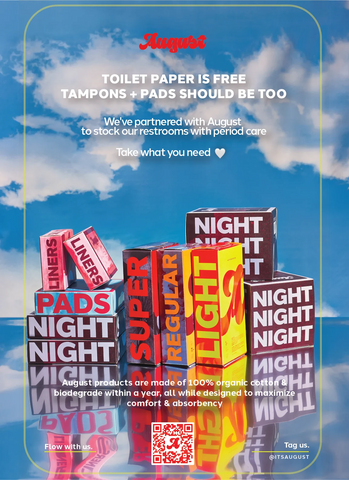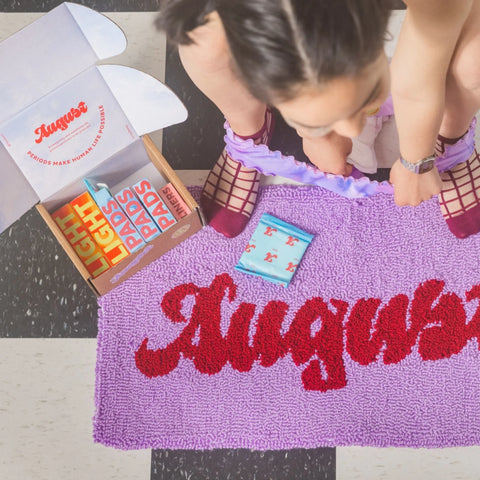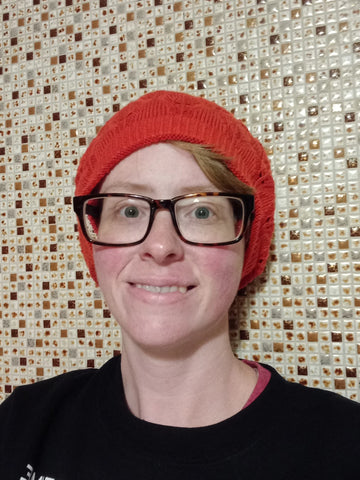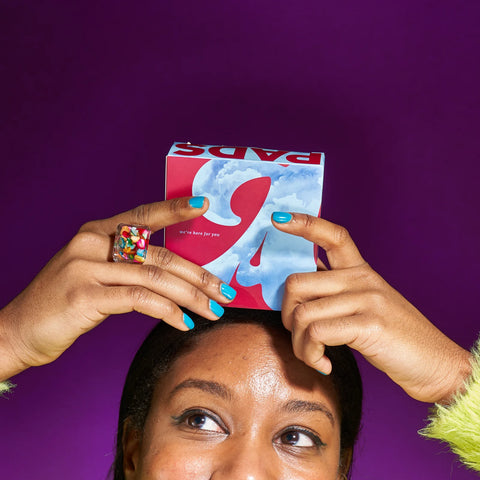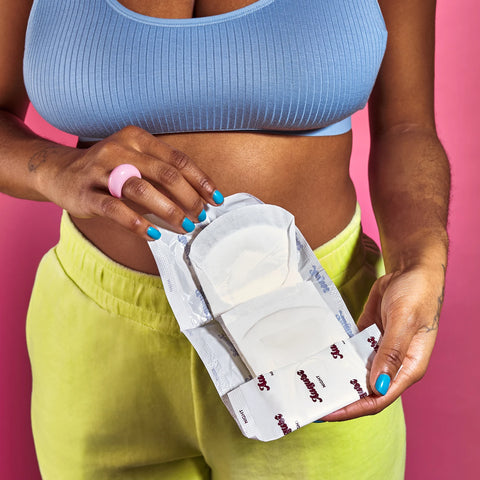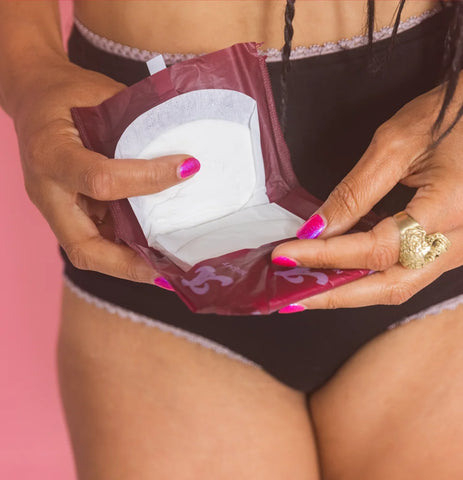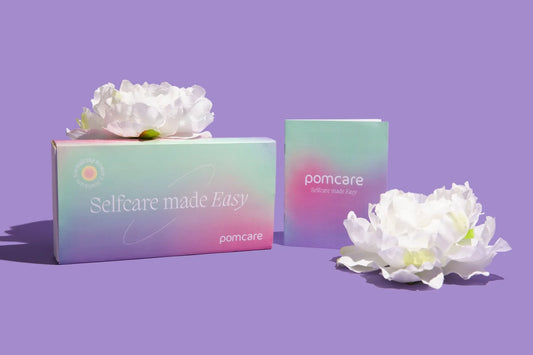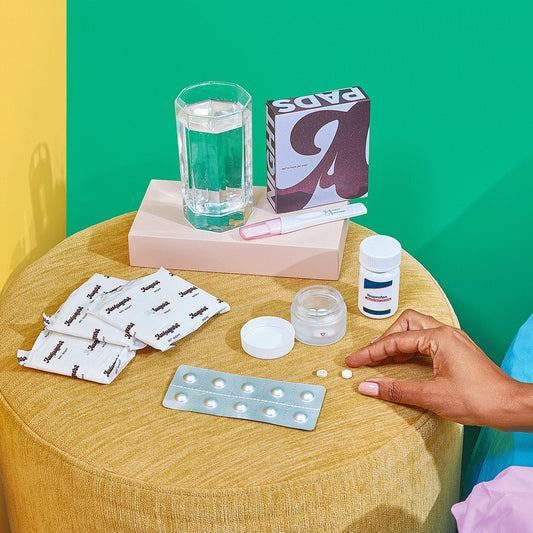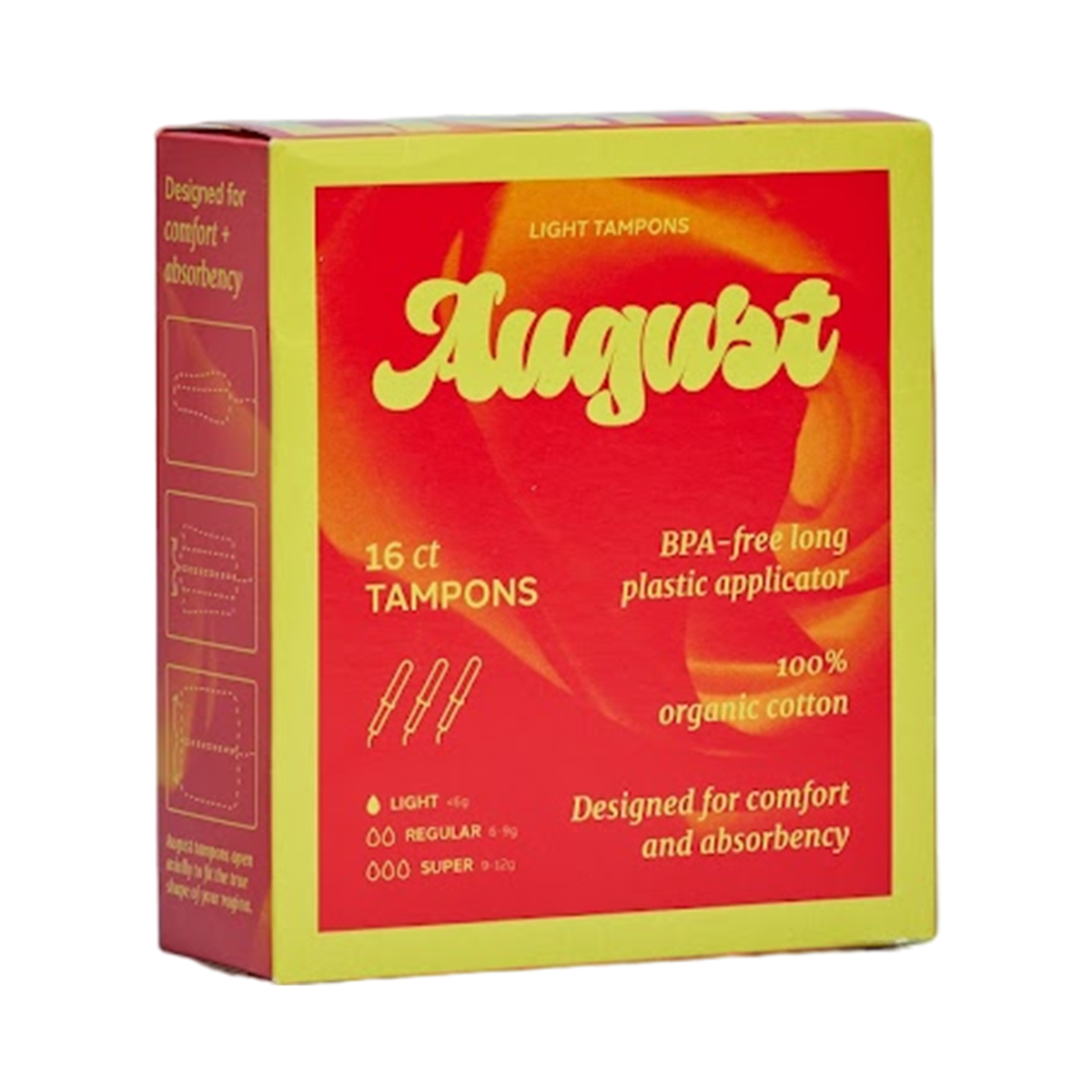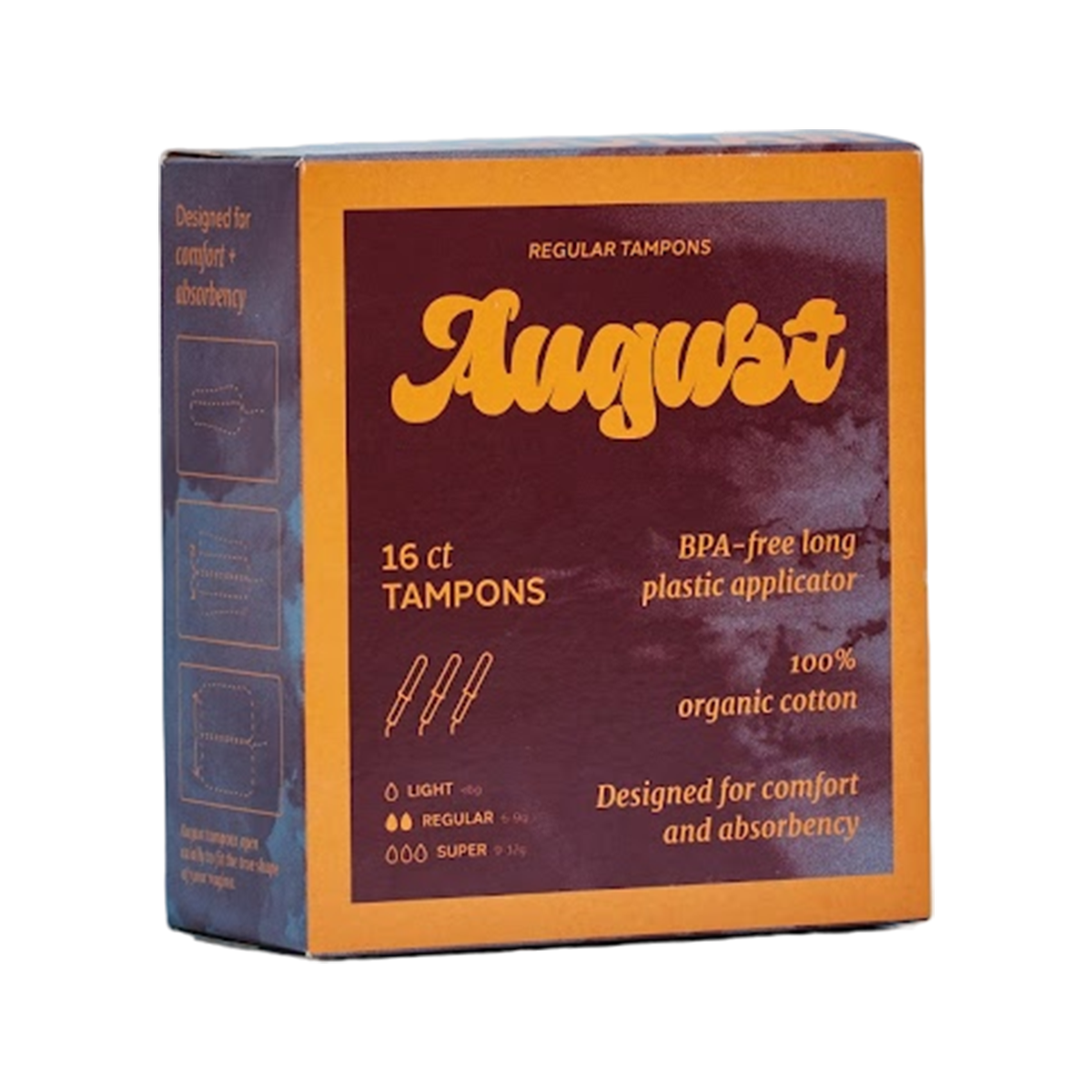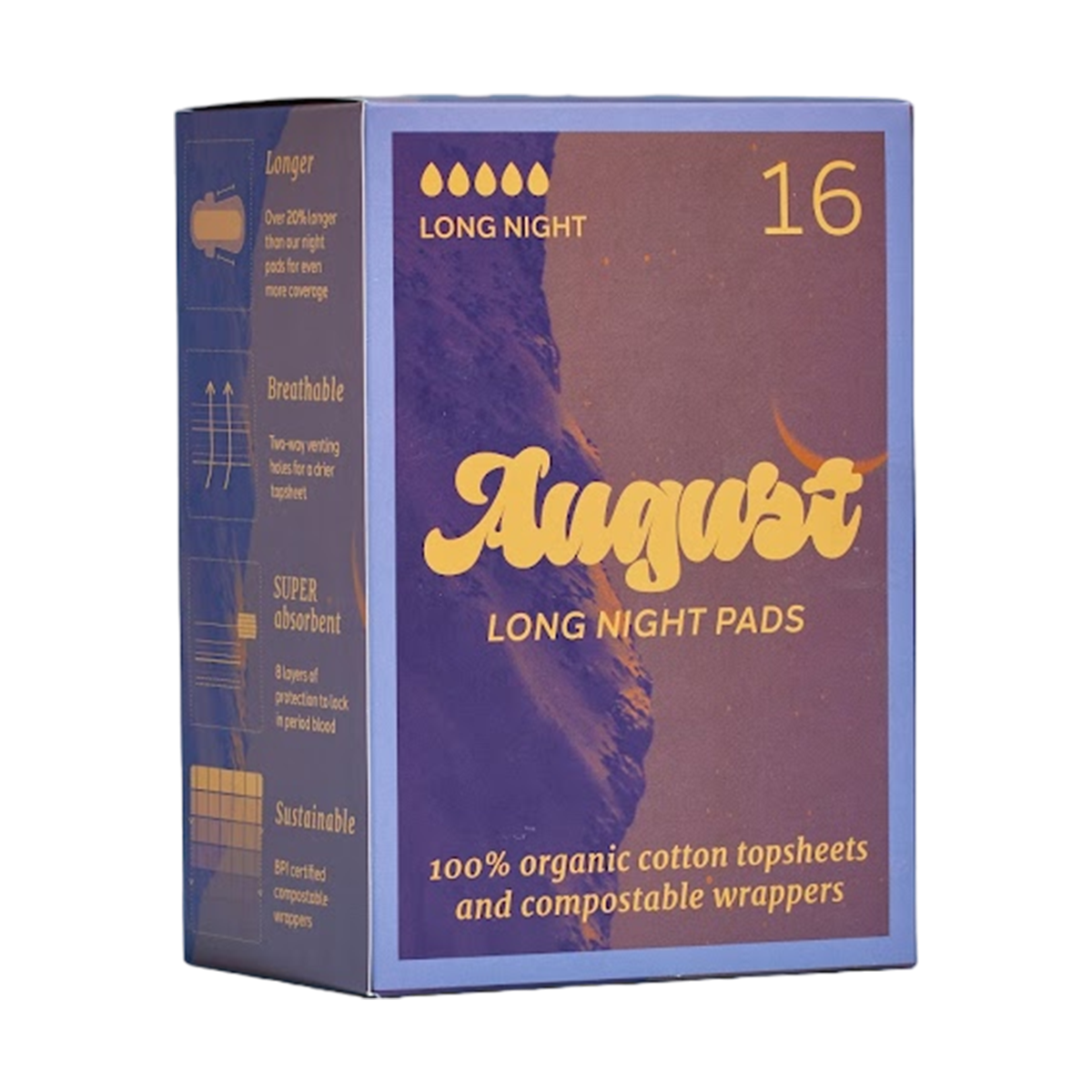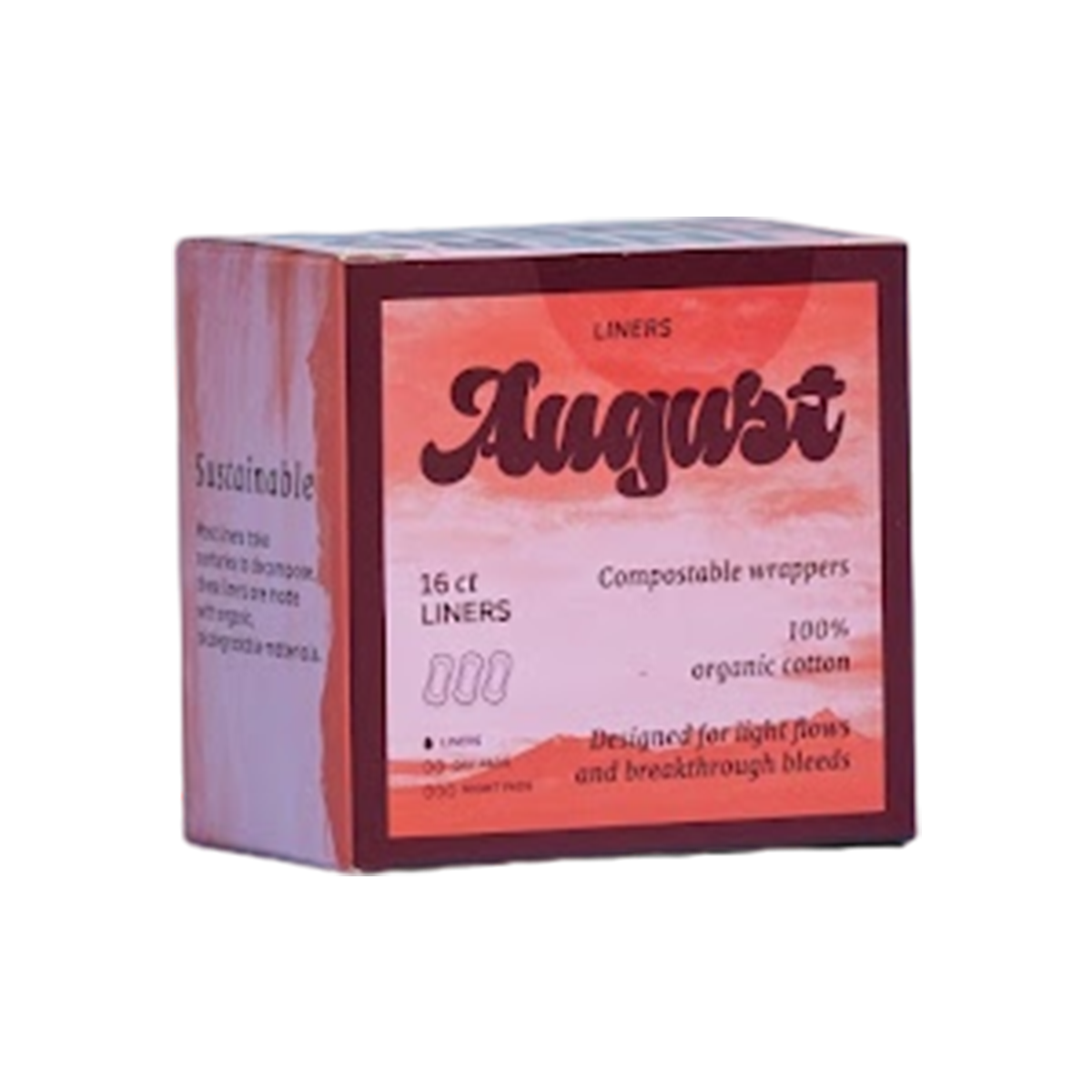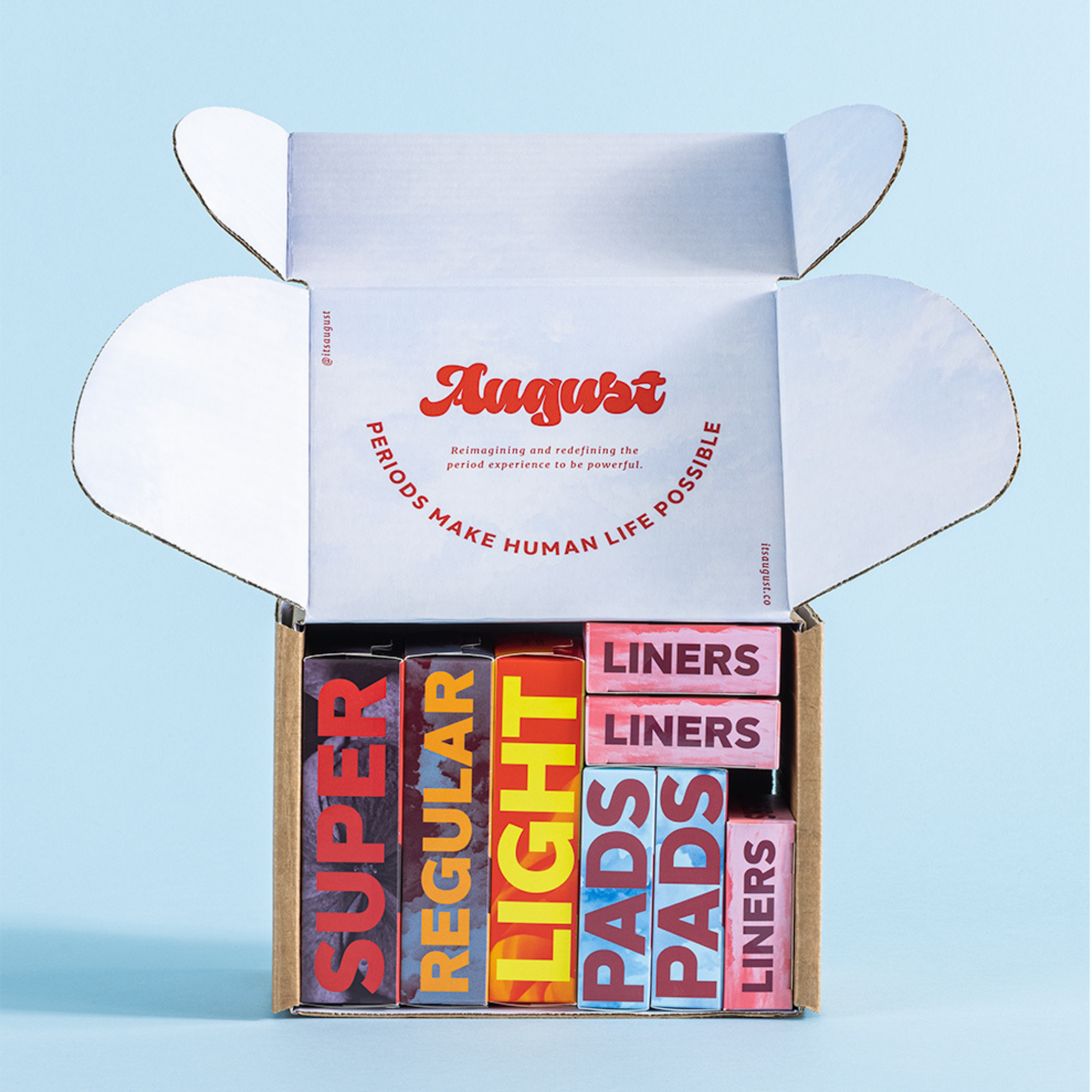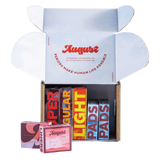What inspired you and ignited your passion for starting FunkIt Wellness? What is the mission and goal?

I've always had a passion for talking about things that people don't traditionally like to talk about (as a dietitian, there’s a lot of poop talk). Still, when I got off birth control, and my health started spiraling, I was SO frustrated that no one had taught me how my body and hormones worked. I was also SO sick of being told no one cared about periods or that they weren't appropriate. The period stigma is still alive and well! All this kicked off my quest to ensure people had opportunities to learn how their hormones work. Once they're educated, they can heal.
Creating a healthy cycle, especially during your period, is hard. How can your cycle give you insight into your health and nutrition?
Our periods and menstrual cycles are key indicators of our health and nutrition. Our bodies can't speak to us through words, so they talk (and sometimes scream) at us through symptoms (like cramps, bloating, heavy bleeding, constipation, diarrhea, etc.). Additionally, many people don't know PMS is not medically normal. It is medically common. Because we've normalized these symptoms in pop culture, many menstruators suffer in silence when they can be helped through nutrition and lifestyle!
What common signs and symptoms tell menstruators it's time to change and prioritize hormones/nutrition?
Painful periods, bloating, mood swings, absent or frequent periods, hormonal acne, exhaustion, general digestive issues, frequent spotting, heavy bleeding, period blood clots larger than a dime size, breast tenderness, and the list goes on and on. Again, it comes back to normalizing these symptoms and not listening to menstruators ' pain, so instead of seeing these as symptoms, we see them as "normal."
What is seed cycling?

Eating for your cycle can be overwhelming at first, but seed cycling is powerful and simple way to get started. This method uses real food (flax, pumpkin, sesame, and sunflower seeds) to work with your body to support your hormones and menstrual cycle. These curated seed blends support your body through vitamins, minerals, fiber, and more to counteract your PMS symptoms as you move through your cycle. Yes, it sounds super easy bc it is. I thought it was BS and woo-woo until I tried it and my hormonal ance was almost totally gone after three months (and hasn't come back in 3 years)!
Why do you think seed cycling is a better option than vitamins?
There are a few reasons as a dietitian I prefer a food first approach. One of the biggest problems with the vitamin industry is that it's not regulated, and a lot of times, you don't know the actual ingredients unless they provide third-party lab testing. The next issue I have is taking pills vs. eating food disconnects us from the power of feeding our bodies. As someone who has struggled with an eating disorder, it's essential to showcase the beauty of food. How we feed our bodies is a crucial part of health. Last but not least, there is quite a bit of research that illustrates that there is much more to food than we think. Instead of consuming just magnesium, for example, when you eat seeds, you get prebiotic fiber, other vitamins, minerals, carbs, fat, and protein, essential to nourish your body and cycle.
You are a registered dietitian. How does nutrition affect periods? What nutrients should menstruators lookout for and incorporate into their diet?
As a dietitian, I am continuously amazed that nutrition impacts every aspect of our bodies and lives. Unfortunately, society has shamed menstruators for feeding our bodies and encouraged us to view food as the enemy. Fun fact, while intermittent fasting has been trending majority of the research was NOT done on people with menstrual cycles. We need proper fuel so that our bodies can peacefully transition through the four phases of our cycle. The first layer of eating for your hormones is creating peace with food and balancing carbs, fat, and protein in your diet. The second step is learning to listen to our bodies. We need to tune into hunger cues to balance our blood sugar. The third step is learning about specific micronutrients (vitamins and minerals) that impact our cycles. Some of the most researched include Vitamin D, Vitamin E, Calcium, Magnesium, B Vitamins, Zinc, and Omega 3 fatty acids! Most of which are in seeds.
Can symptoms of your period be hints that one should pay more attention to their diet too?

I like to look at symptoms as our bodies talk to us and give us a heads up something is off, and looking at our diet + lifestyle is a great place to start. It is important to note that often things have a few different causes, and it usually takes a multi-factor approach such as creating balance with food, destressing, getting more sleep, and drinking water! But overall, your period should not be painful and horrible!
Why is it important to openly share information about our health and periods? What change would you like to see in the world regarding period stigma?
Nothing changes if we don't talk about things and create a conversation. Shame thrives in silence. The period stigma has lasted decades due to the patriarchy leading us to believe menstruation is gross or untouchable. In reality, the menstrual cycle is beautiful and literally can further the human race if you choose to do so. Understanding our bodies is the key to unlocking confidence and leaving the unrealistic body and beauty standards in the past.
What are the main hormones to be aware of when it comes to my period? And what do they do? (e.g., progesterone and estrogen)
The menstrual cycle can be broken down into four phases. The first day of your cycle is your first bleed day, known as menstruation, and this time in your cycle, your hormones will be generally low; think of it as a reset. Once you finish bleeding, you will enter the follicular phase. This phase aims to get your egg ready to be released for ovulation. The primary hormone at play is estrogen, followed by follicle-stimulating hormone (FSH). Ovulation is triggered by a spike in Luteinizing Hormone (LH) and a spike in estrogen and testosterone. After ovulation, you enter the Luteal phase dominated by progesterone. If the egg isn't fertilized, the whole cycle starts over! A menstruator's body is different every day, so it is essential to take things daily and tune into what feels good for you. Not a huge shocker, but the typical 9-5 wasn't designed to accommodate the menstrual cycle. It WAS intended to accommodate a male hormonal cycle (their hormonal cycles last 24 hours vs. 28-35 days).
What does it mean to "balance your hormones," and why should we care about it? How does nutrition play into this?
While the inner workings of hormone balance and balancing your hormones can be complicated, it essentially means that everything is working as it should and you are not experiencing negative symptoms associated with your hormones. A regular cycle happens every 21-35 days, pain-free with minimal cramping, no hormonal acne, bloating, migraines, fatigue, or severe mood swings!
Walk us through the treatment/seed plans on your page and how people can correctly identify which plan or kit is the right for them?
The first step to see cycling is to start tracking your menstrual cycle! You can do this through an app or a calendar/planner. There are also other pretty cool devices that you can wear to track your cycle and temperature throughout the month. Once you start tracking your cycle, seed cycling is as easy as identifying where you are in your cycle, choosing the Funk It blend that matches, and adding them to the foods you eat!
Are there specific things menstruator should focus on eating during each menstruation phase? Best foods to eat on your period? (Eg. menstrual phase, follicular phase, ovulation phase, luteal)
Like I mentioned above the first step is feeding your body and focusing on keeping your blood sugar balanced but here are a few things recommend based on each phase!
Menstrual Phase foods to add: Iron-rich foods Warm foods that are easy to digest Pumpkin + Flax Seeds (hello omega 3's, magnesium, zinc, and prebiotic fiber)! Antioxidant-rich fruits and veggies Ginger and peppermint for easing bloating Fermented foods (hello, gut health) Turmeric for inflammation Lots of water (reminder that the uterus is a muscle)
Follicular phase + Ovulatory Phase: Fiber and lots of complex carbs (this is your reminder that carbs are good for you)! Research shows that we are good at digesting and utilizing complex carbs in this phase Eat whole grains, fruits, veggies, quinoa, beans, and legumes. Pumpkin + Flax Seeds (hello omega 3's, magnesium, zinc, and prebiotic fiber) Foods that support liver detox, such as cruciferous vegetables
Fermented foods to support gut health
Note: While these have slightly different hormones at play, I loop them together because ovulation is a very short window, and you will still want to focus on getting rid of excess estrogen!
Luteal Phase: Protein is vital in this phase. It can be from high-quality plant or animal sources, whatever floats your boats. There is evidence that we don't absorb protein in this phase, so our needs are slightly higher. Sesame and Sunflower seeds (Zinc, Vitamin E, Vitamin B6, Selenium, and Magnesium). *Switch your seeds AFTER you ovulate. Start cutting back caffeine and alcohol in this phase. Keep a focus on fiber from plant sources and whole grains. Cucumber and other water-rich fruits and veggies can help with water retention. Note you can burn between 100-300 EXTRA calories in this phase so if you are hungry feed your body! Make sure to rest up!
What has been the biggest challenge in starting and growing Funk It?
At the start, the most challenging part was getting people to see how magical menstruation can be and why we should care. People told me repeatedly that no one would care about taking care of their cycle through food (luckily, they were all wrong). My favorite part about growing the business is sharing something so important (and should be an essential part of education) with so many menstruators and seeing their lives change.
To purchase Funk It Wellness seed cycling kits, a simple, effective way to naturally support hormonal balance, click here! https://funkitwellness.com/?wly=14760



